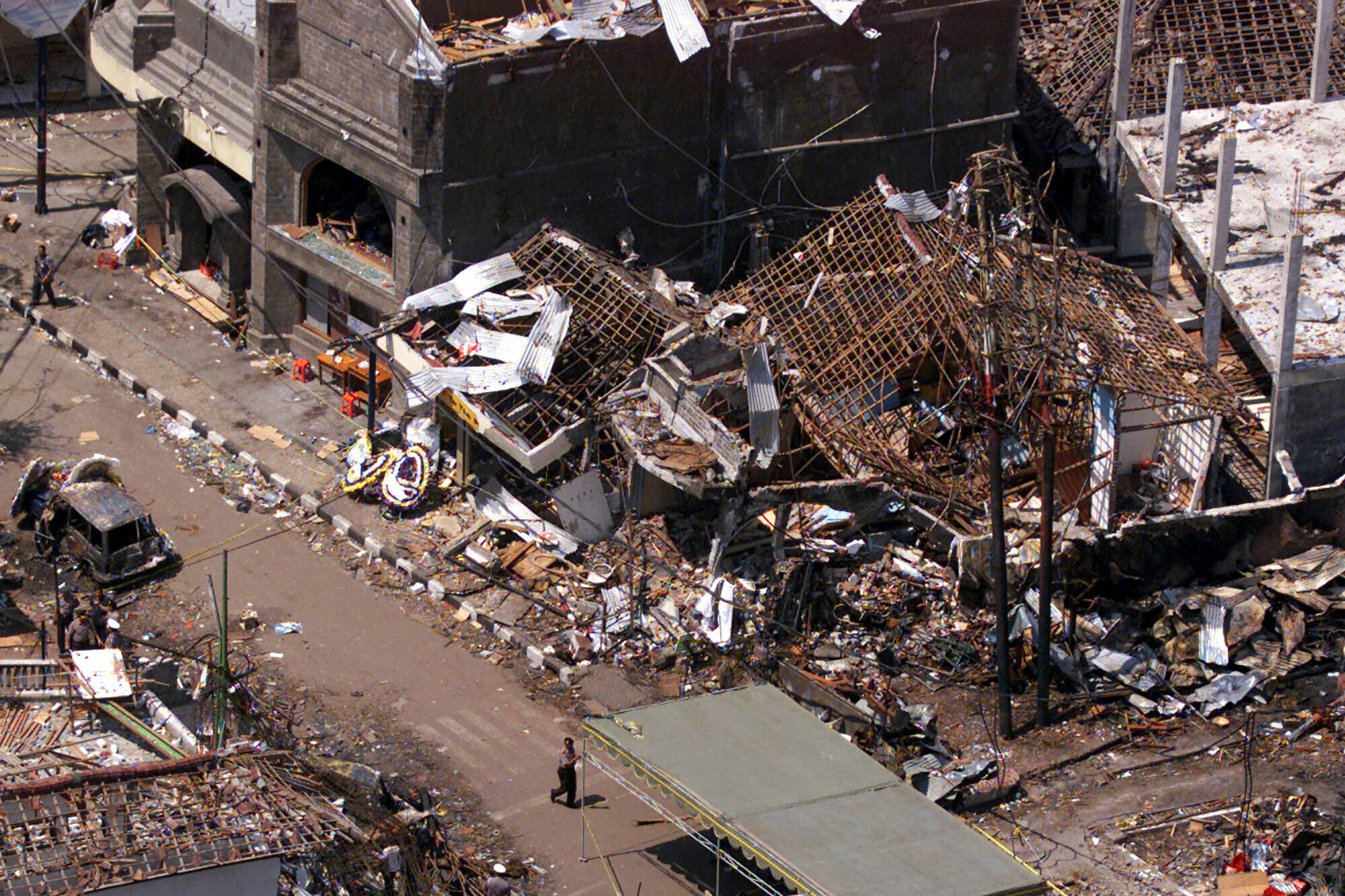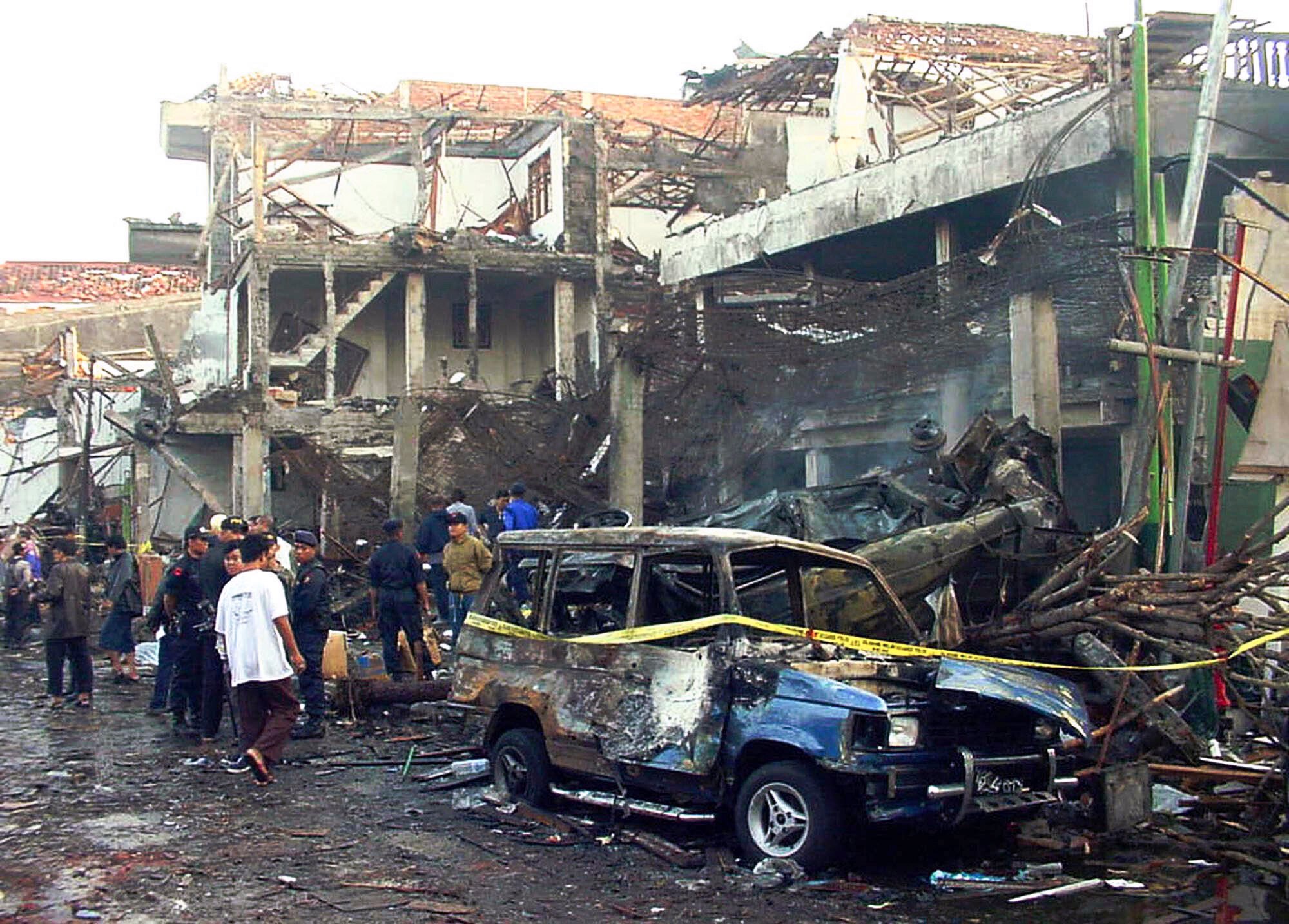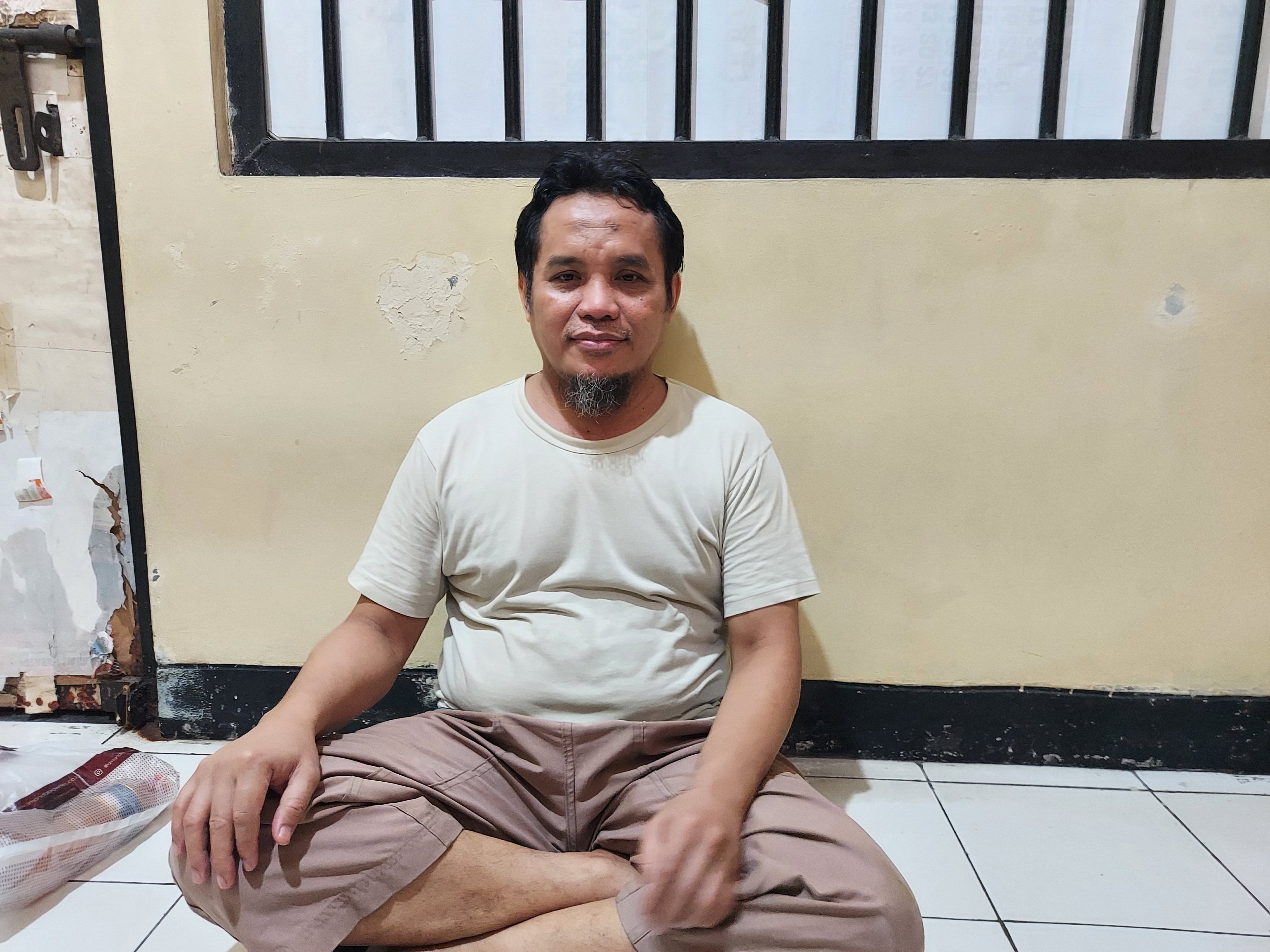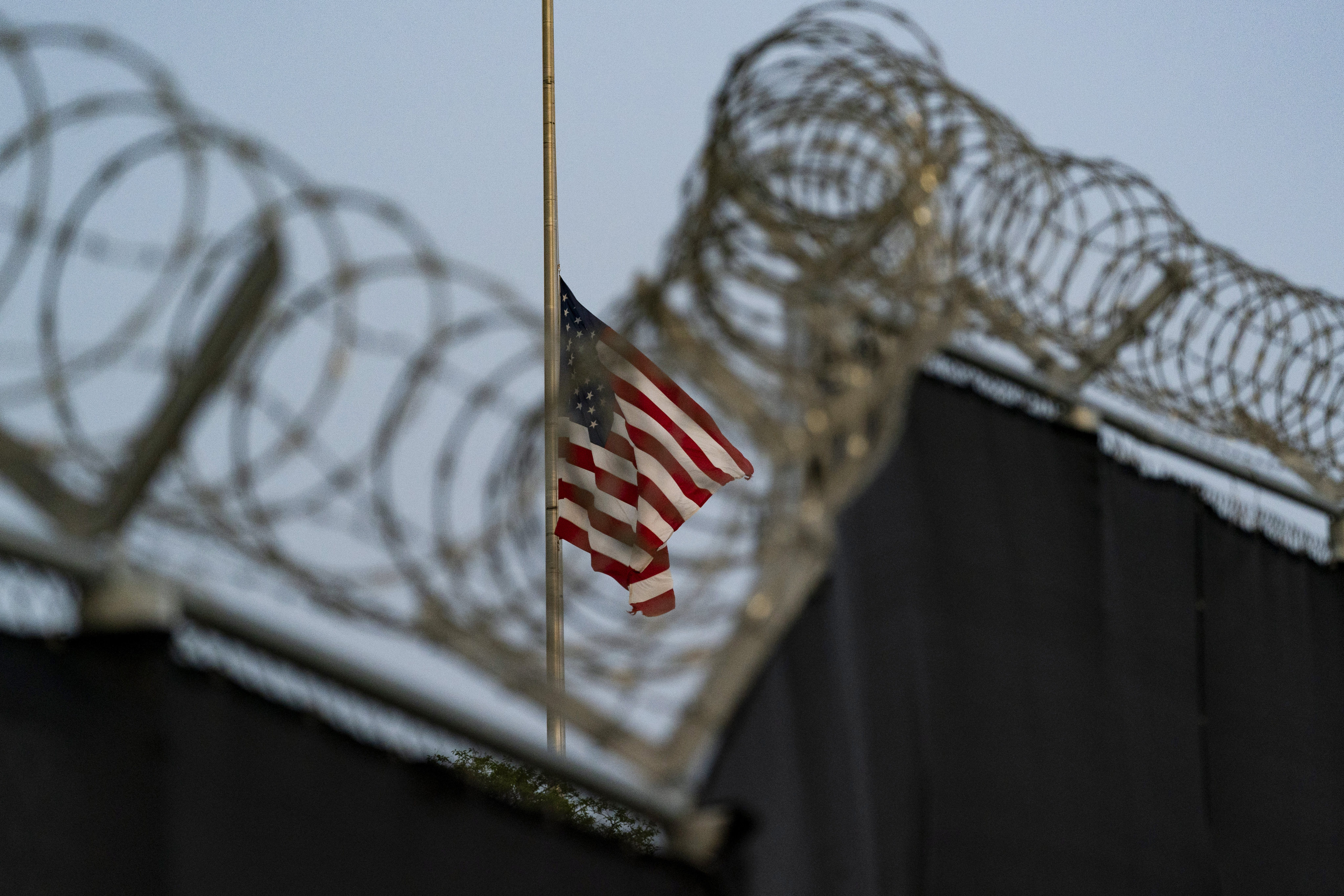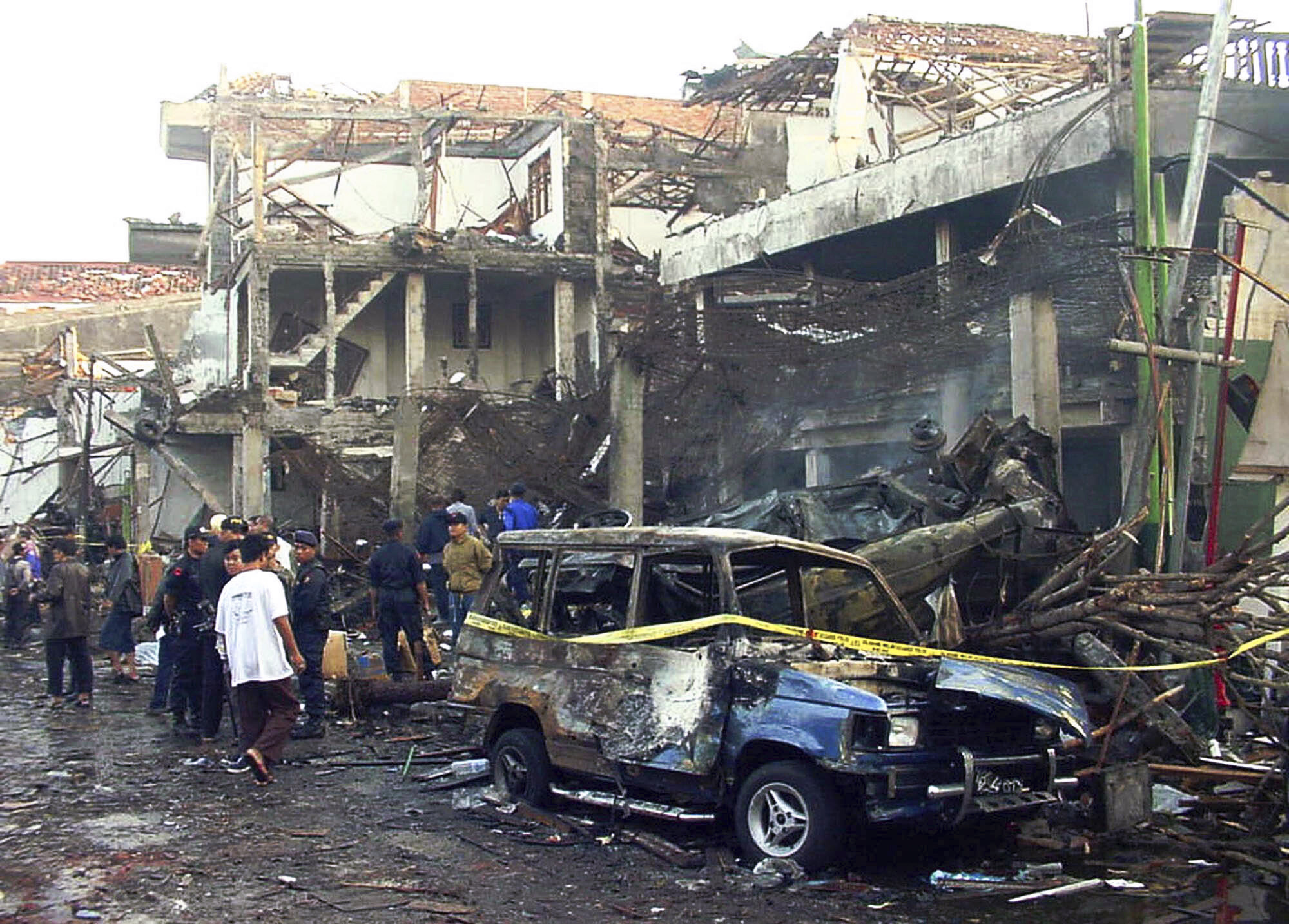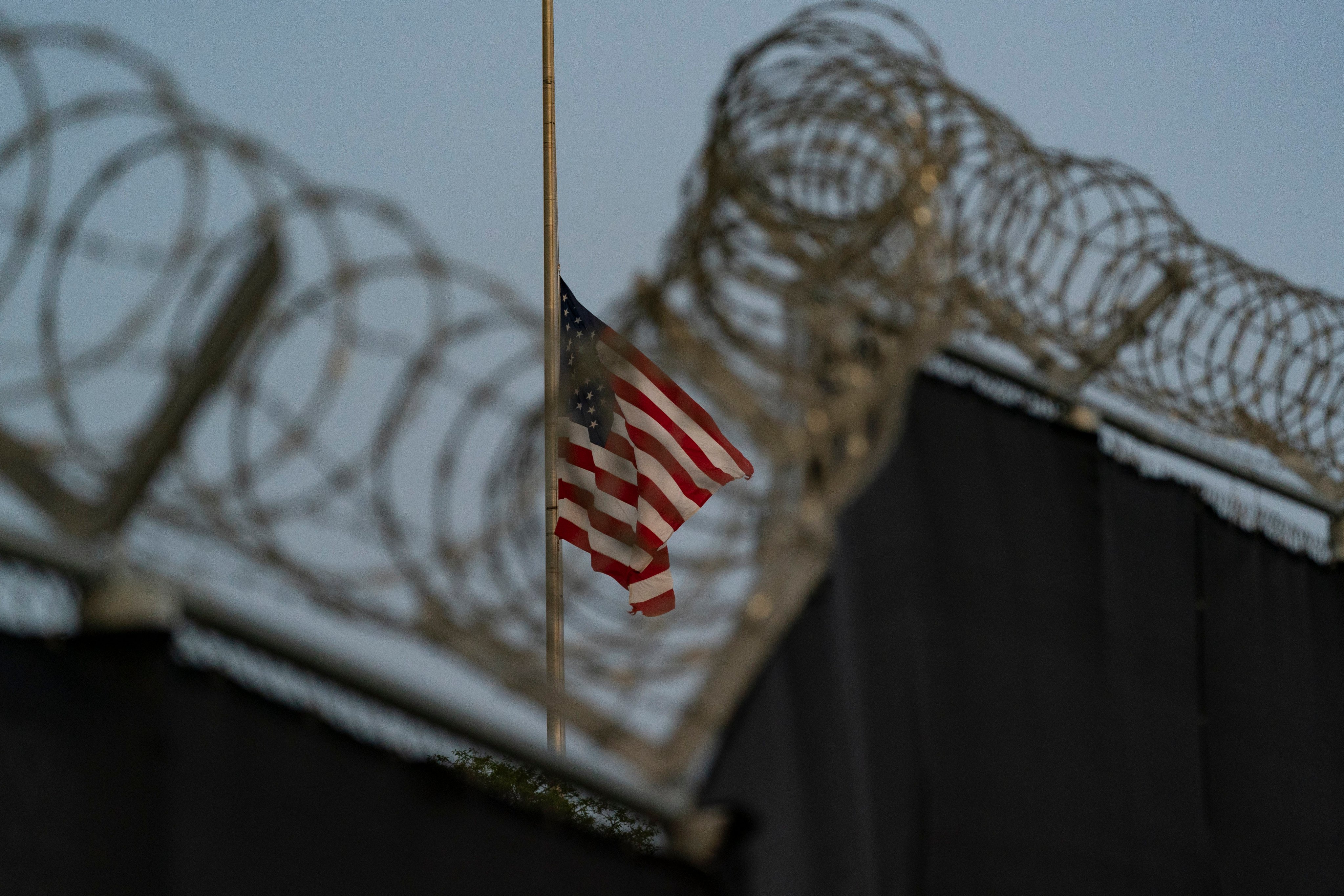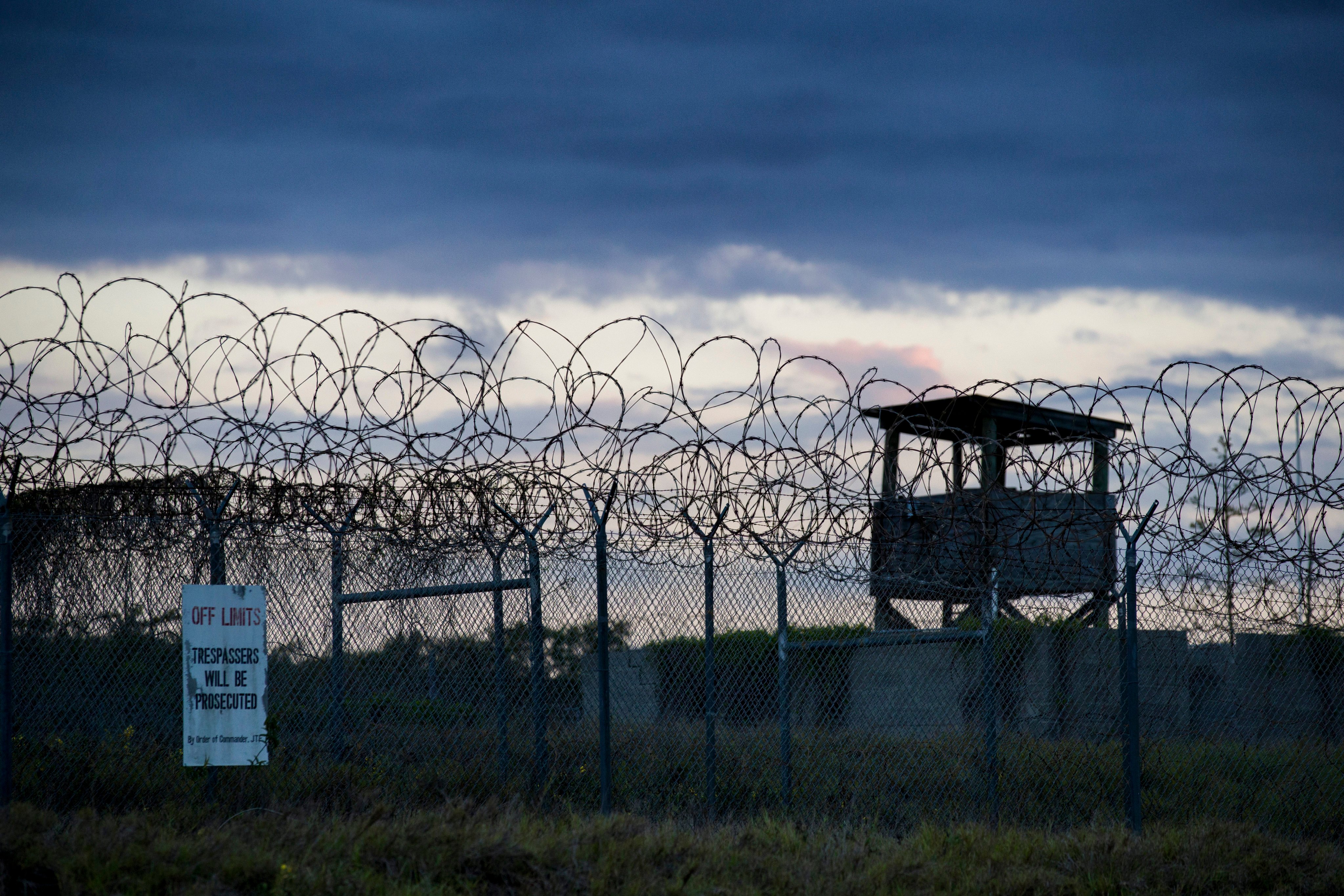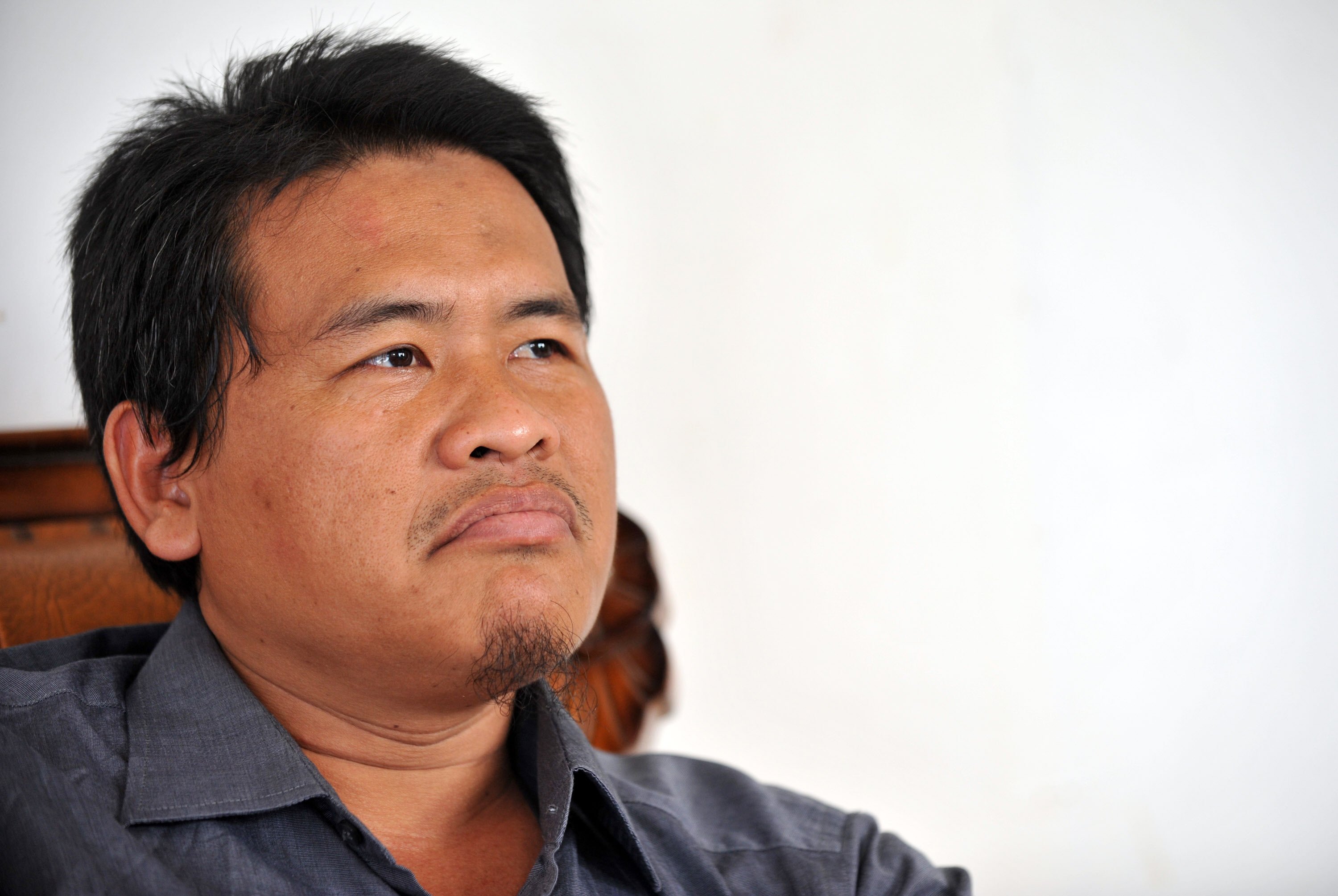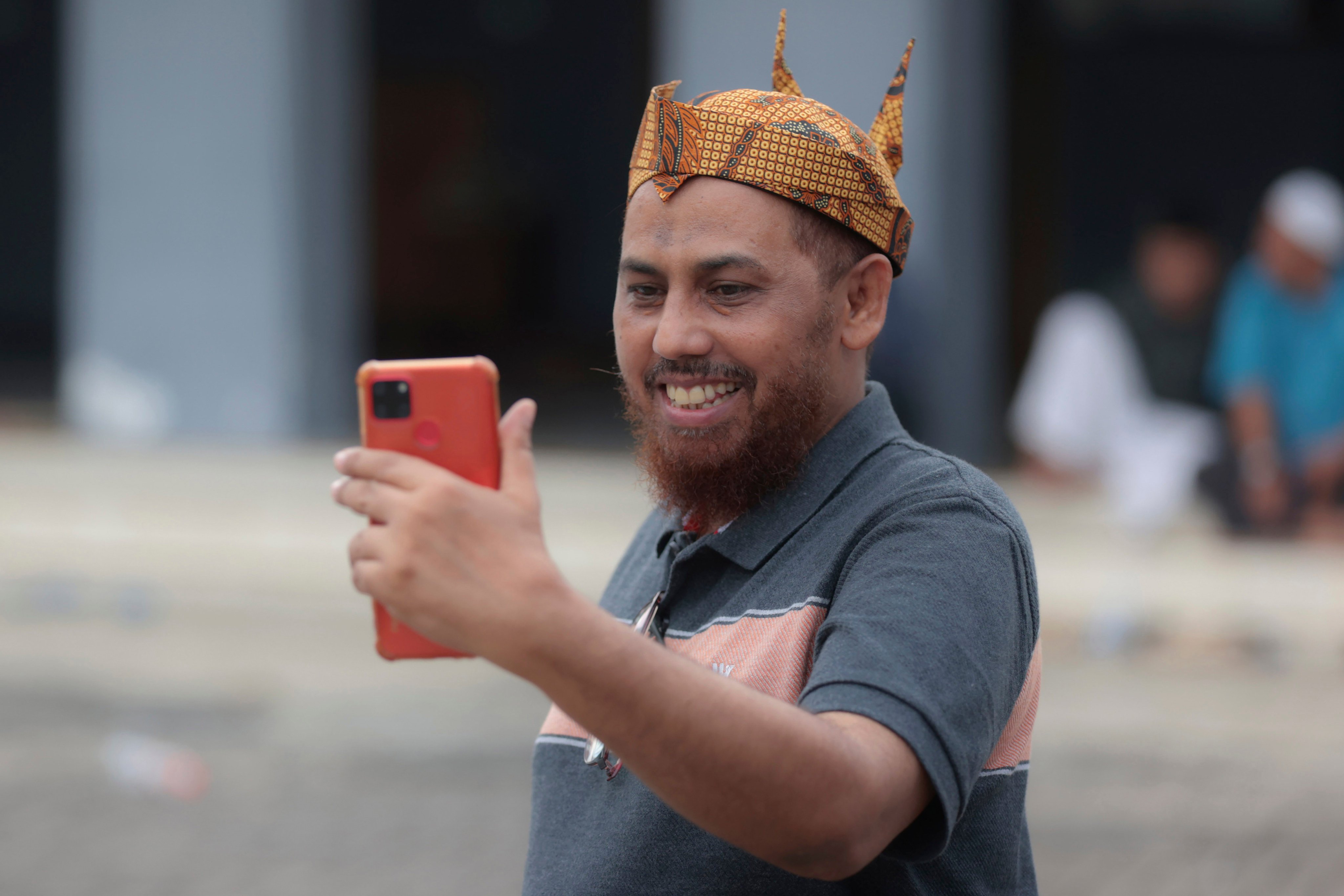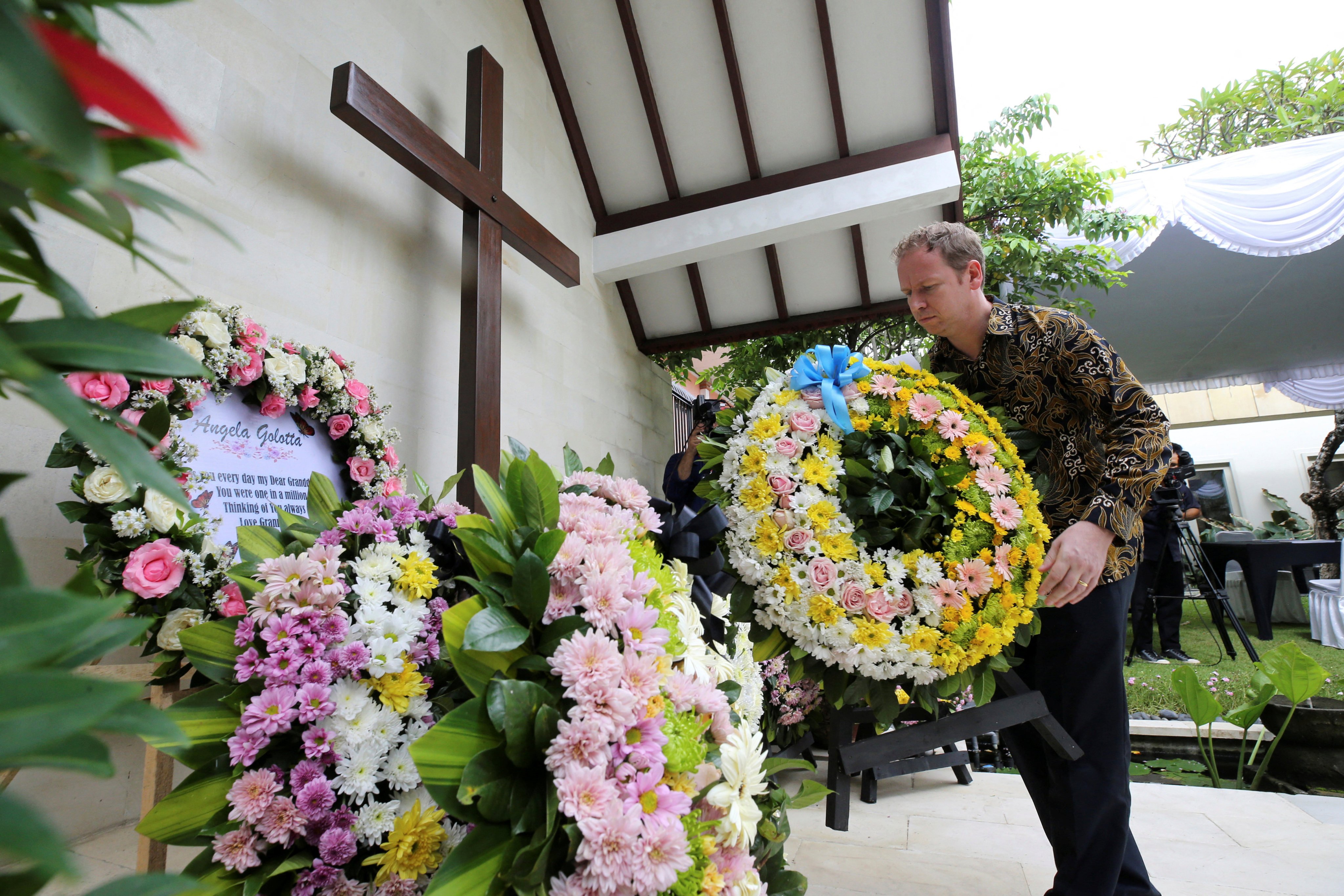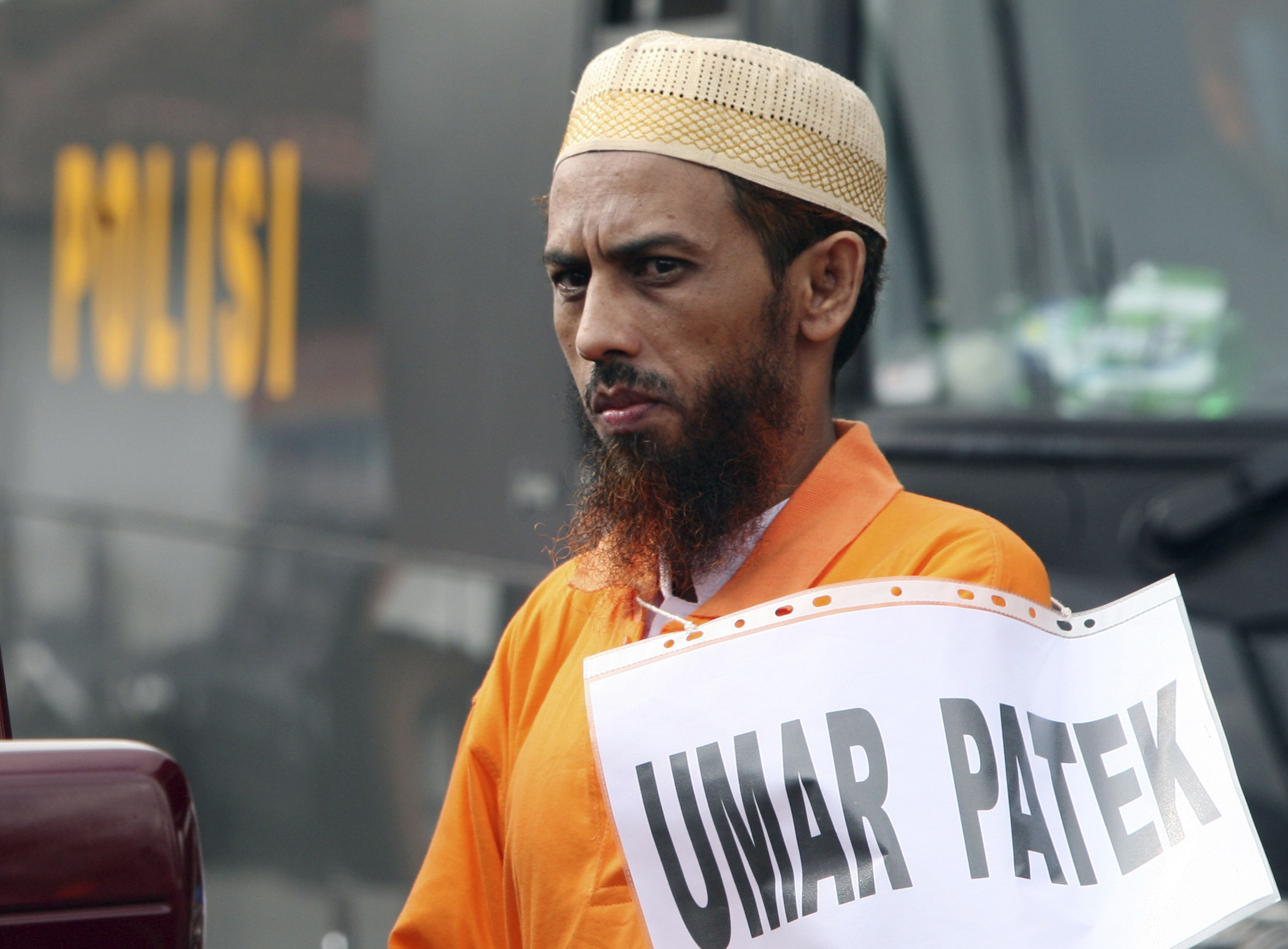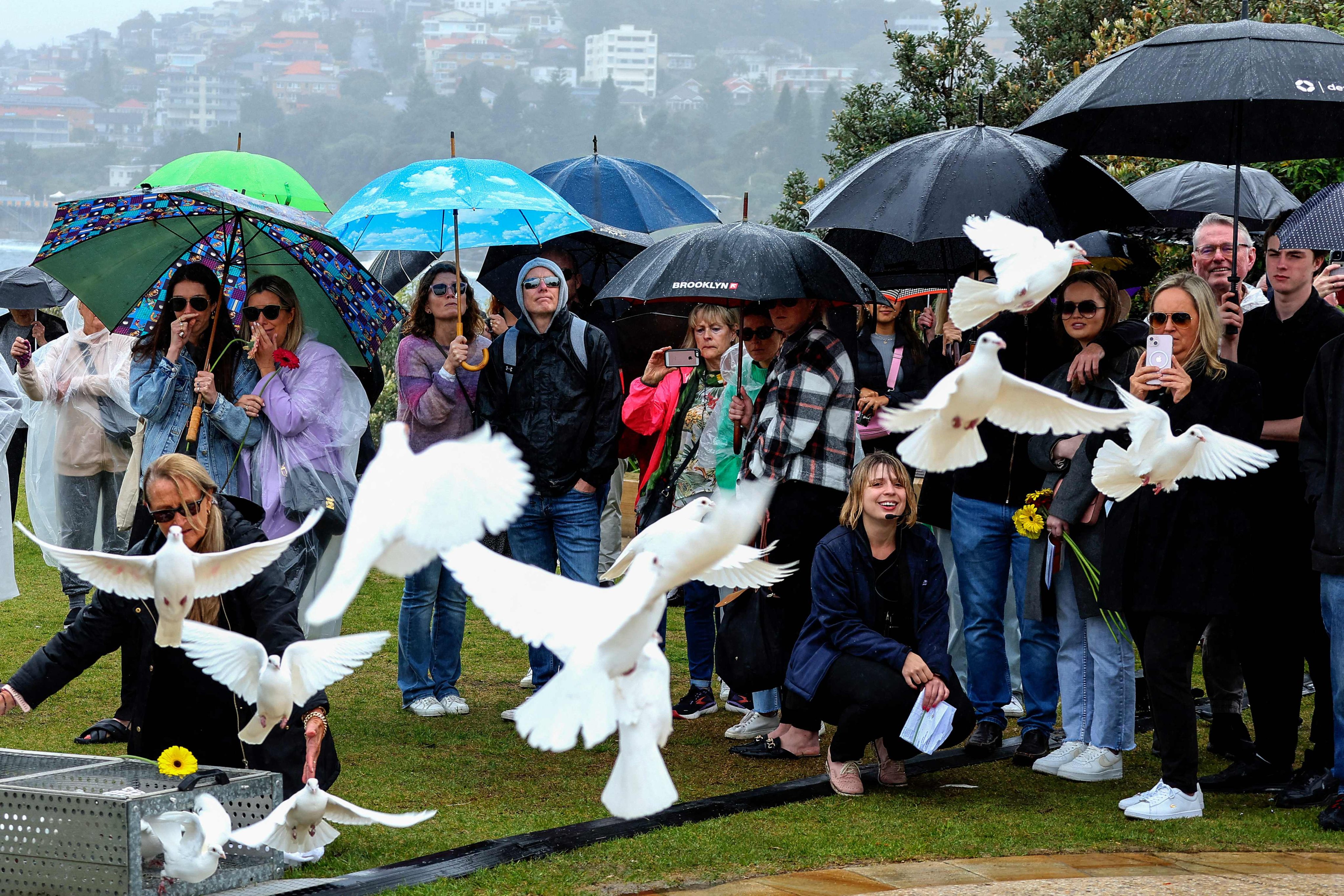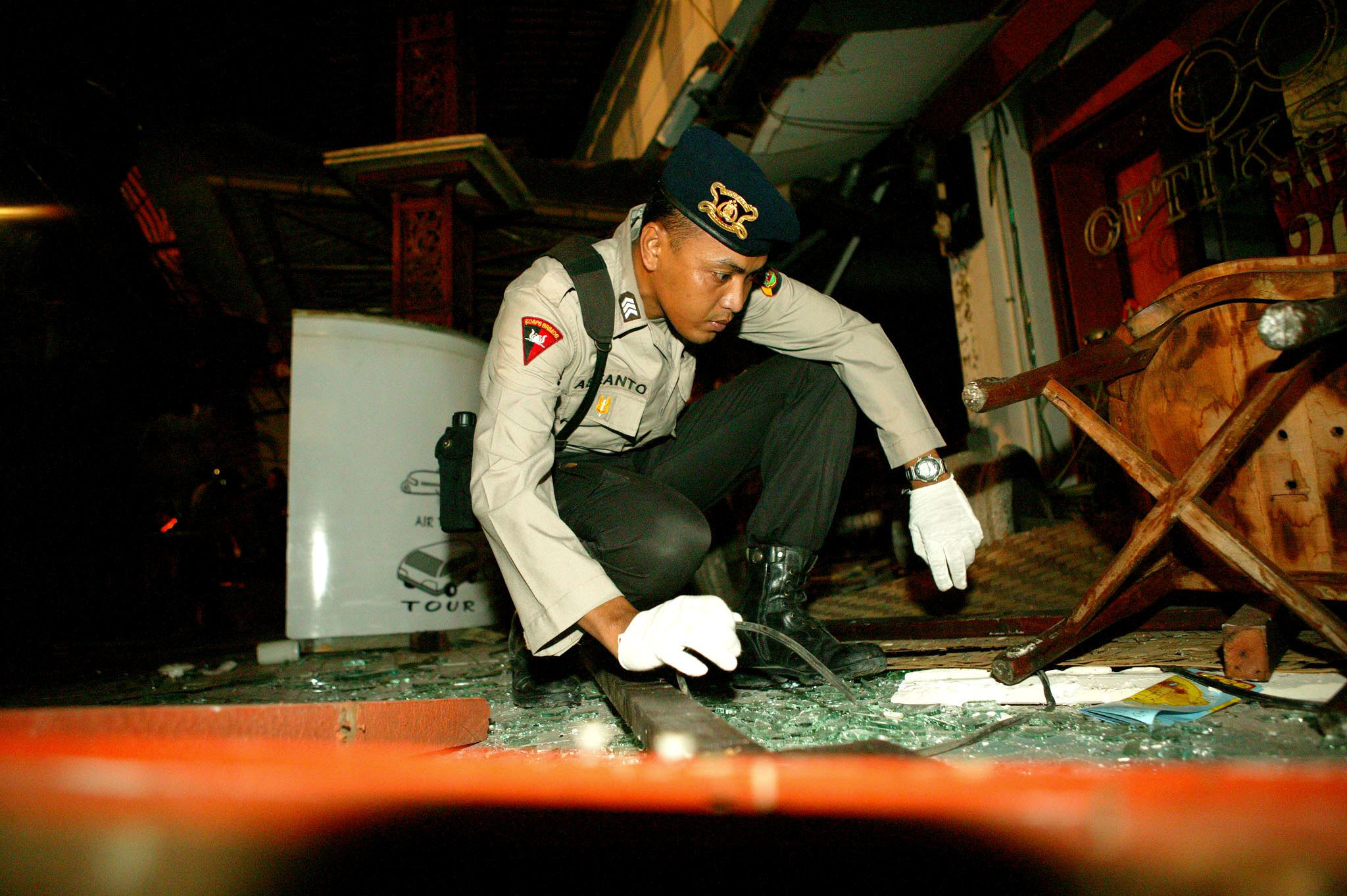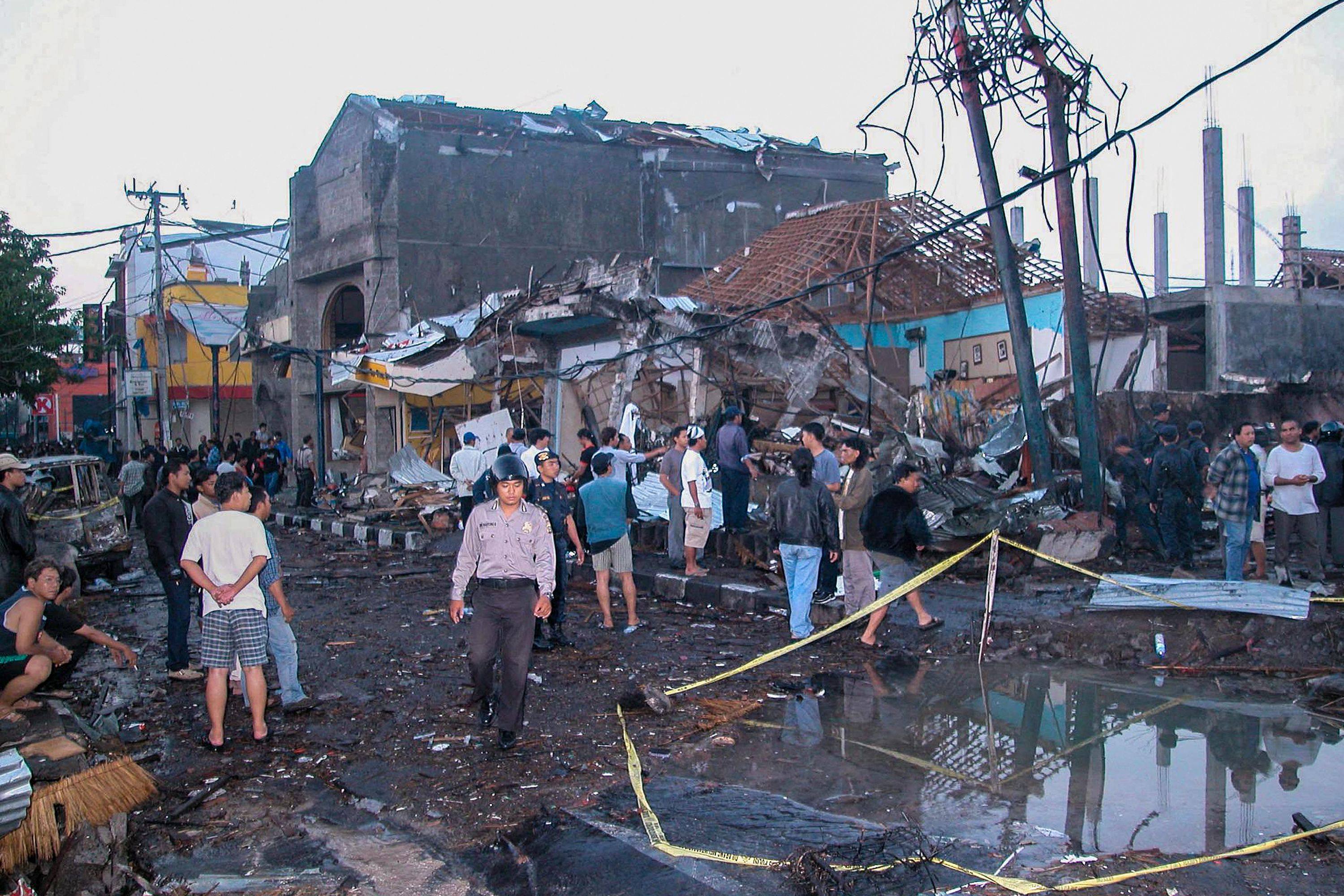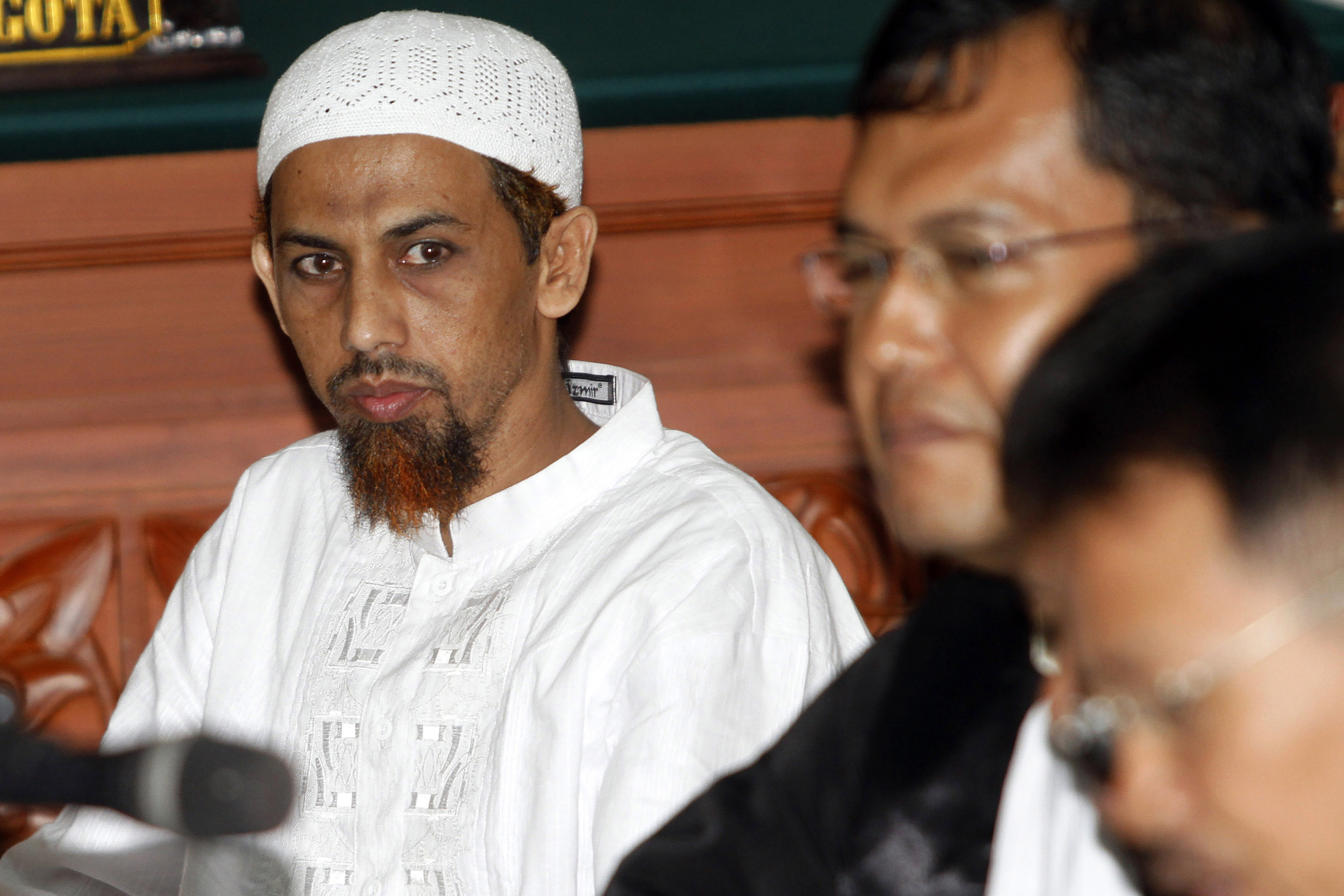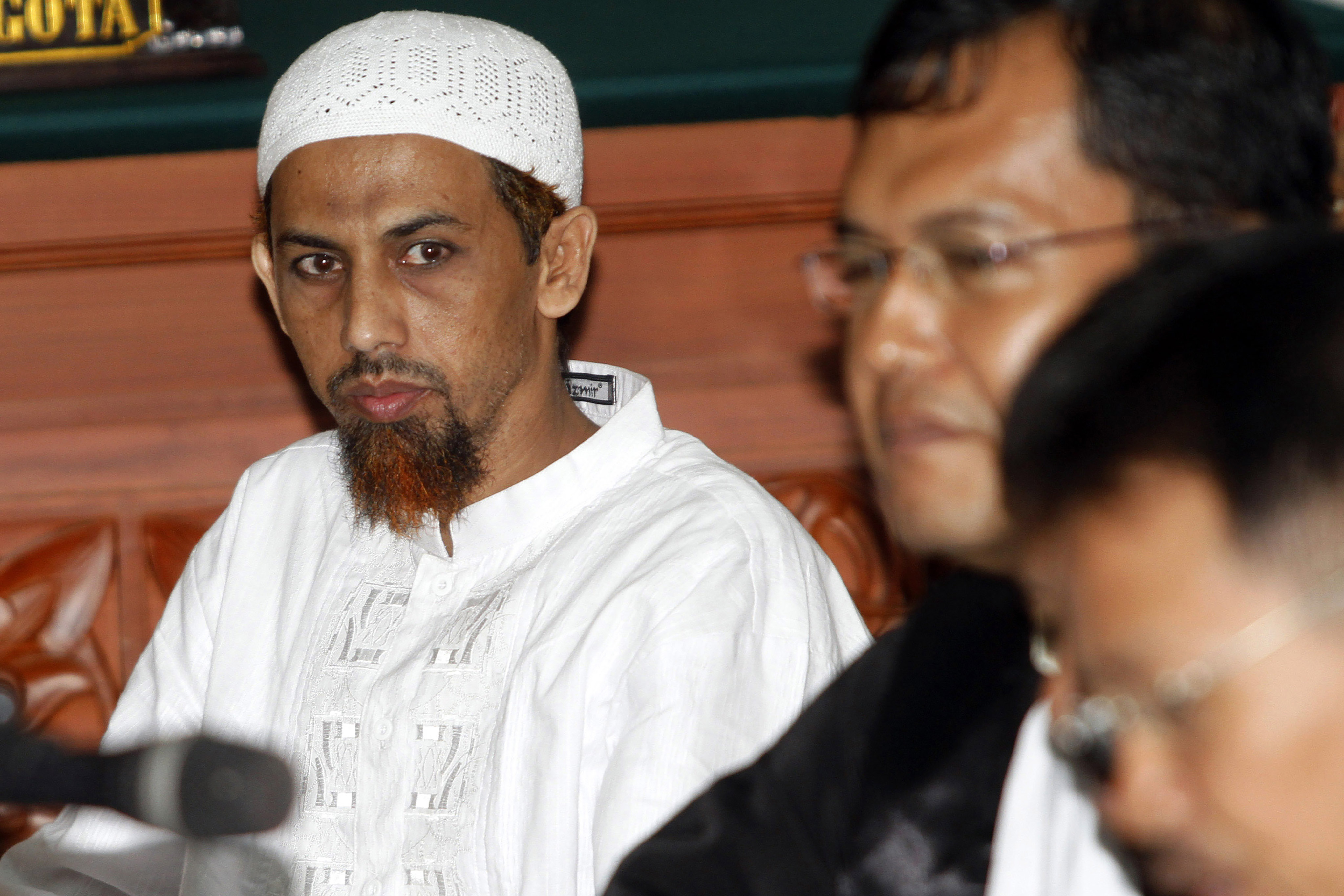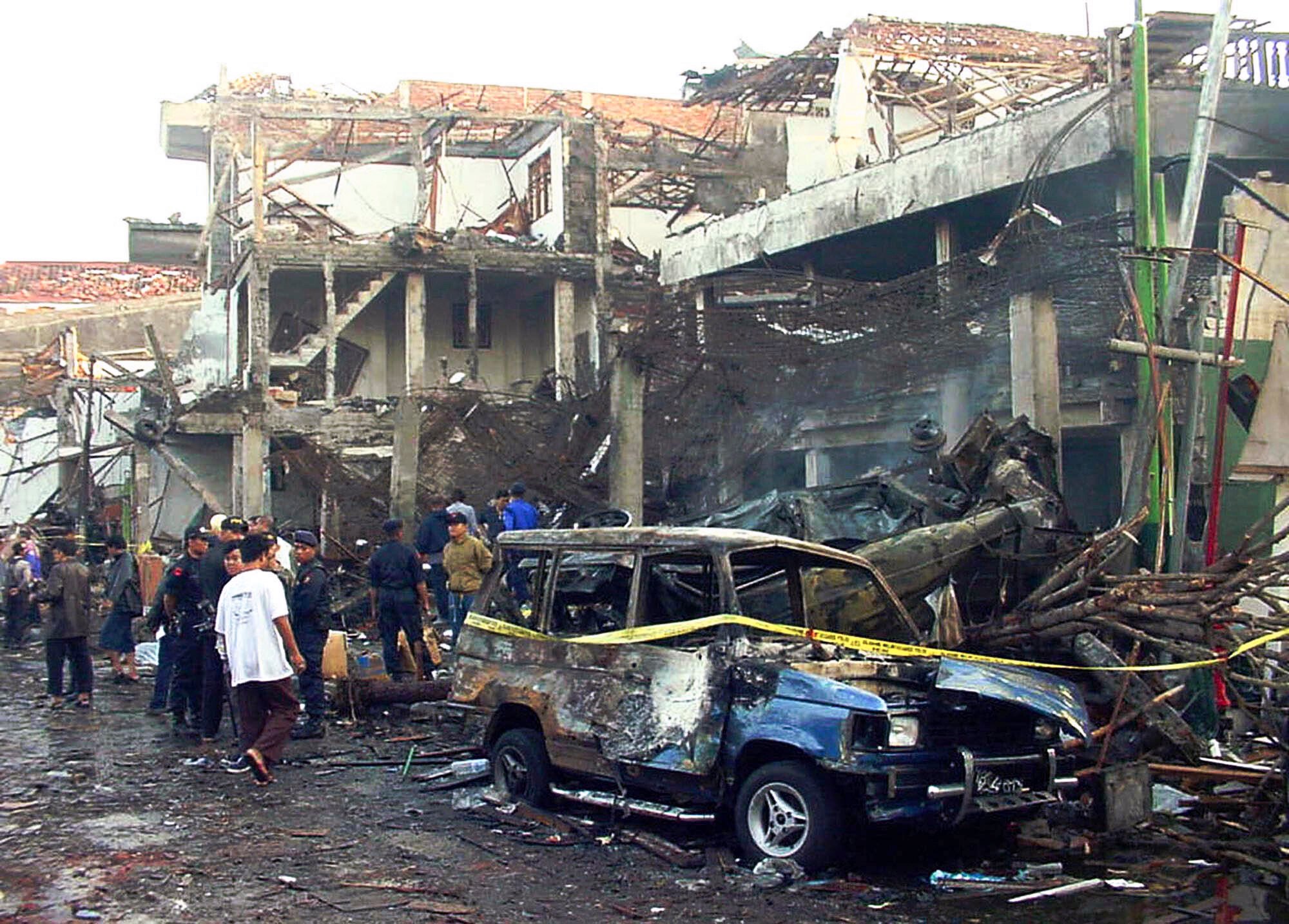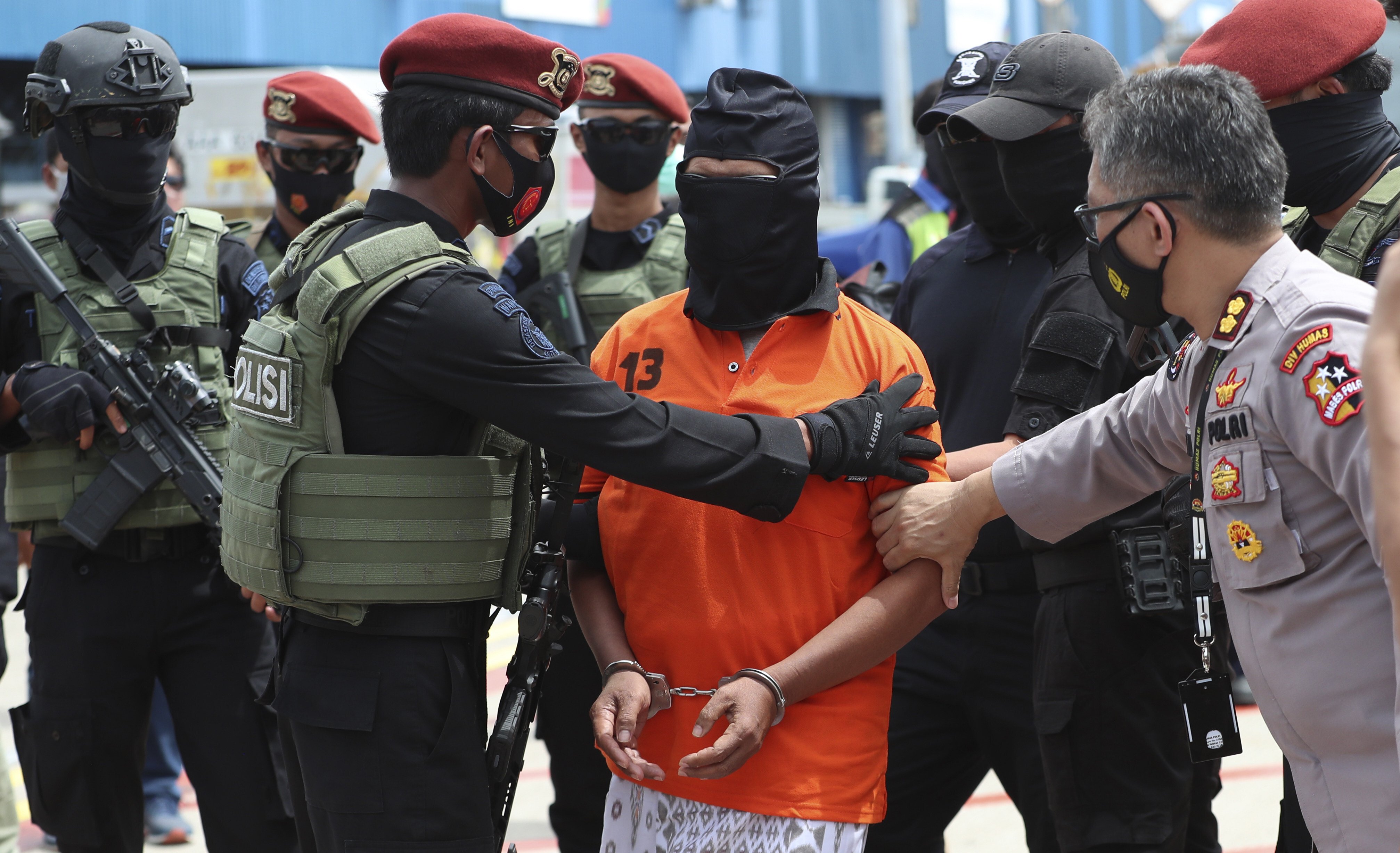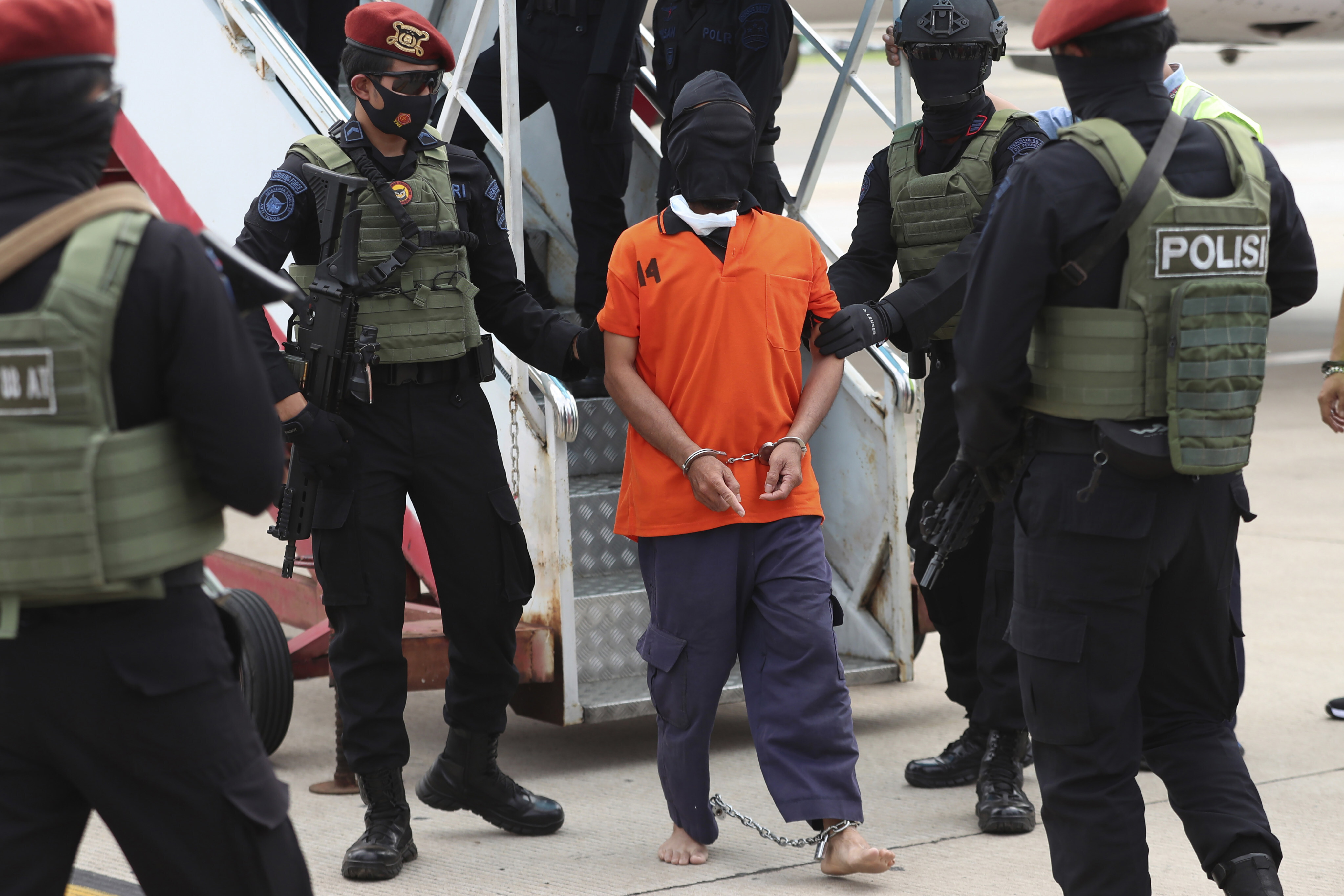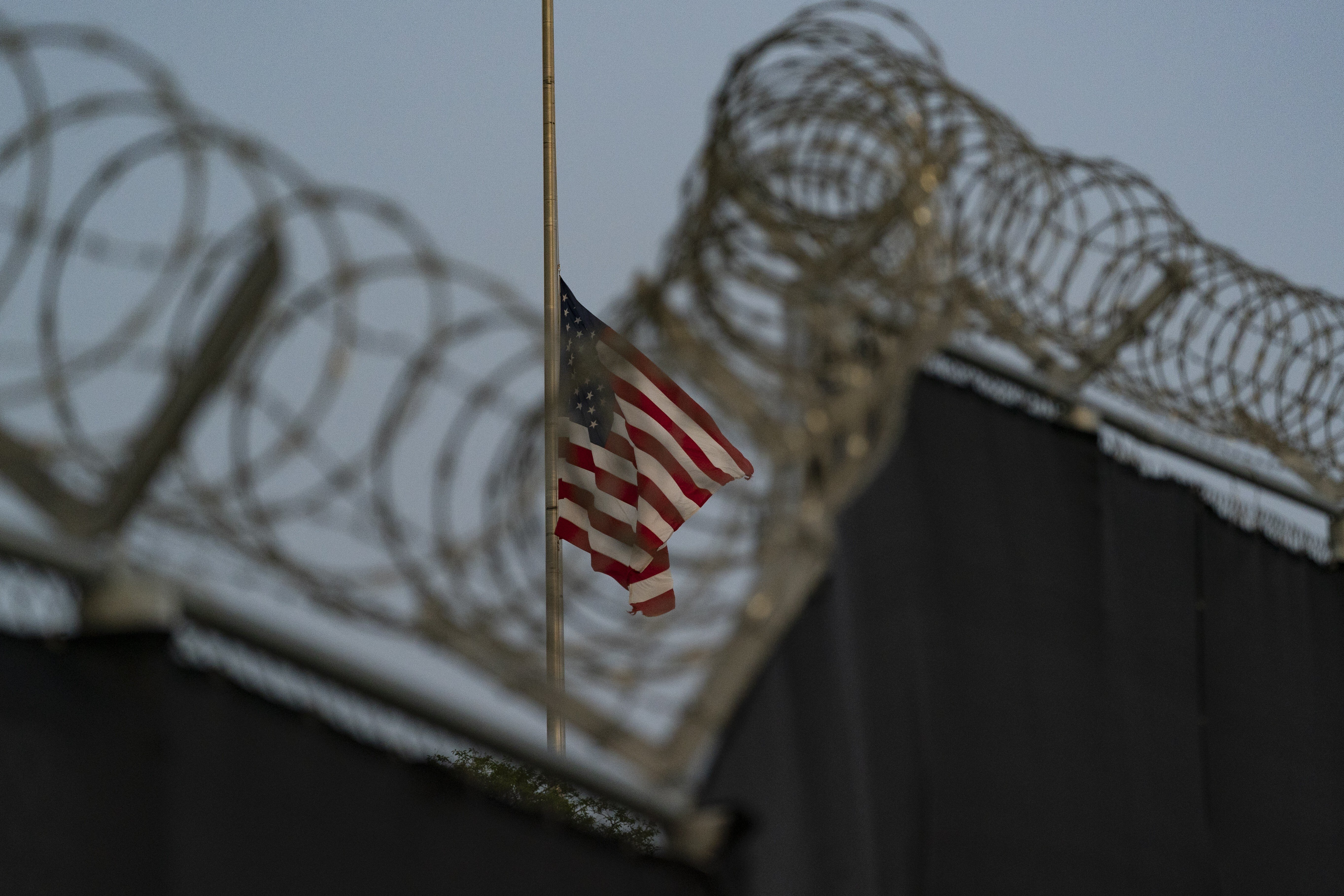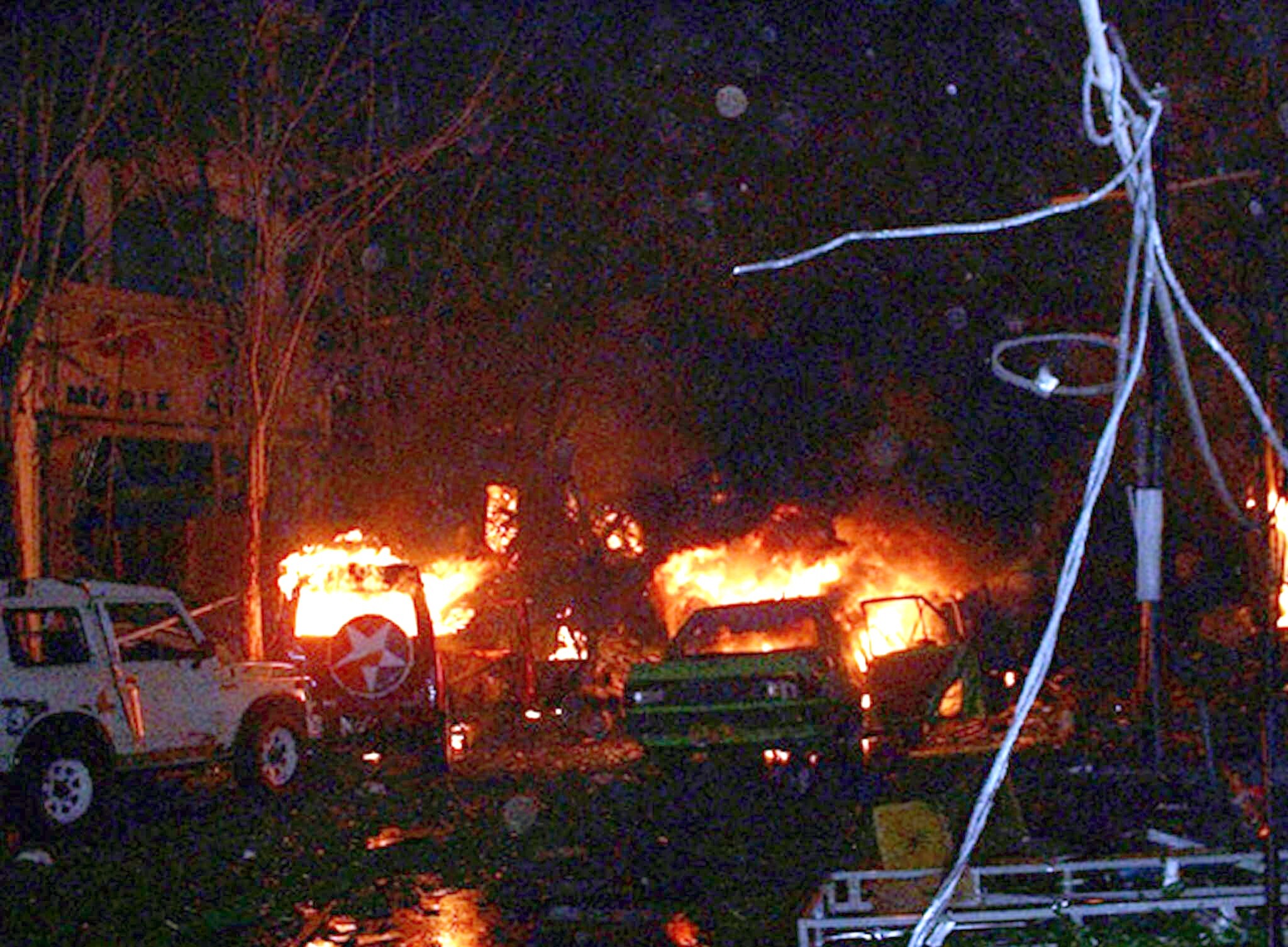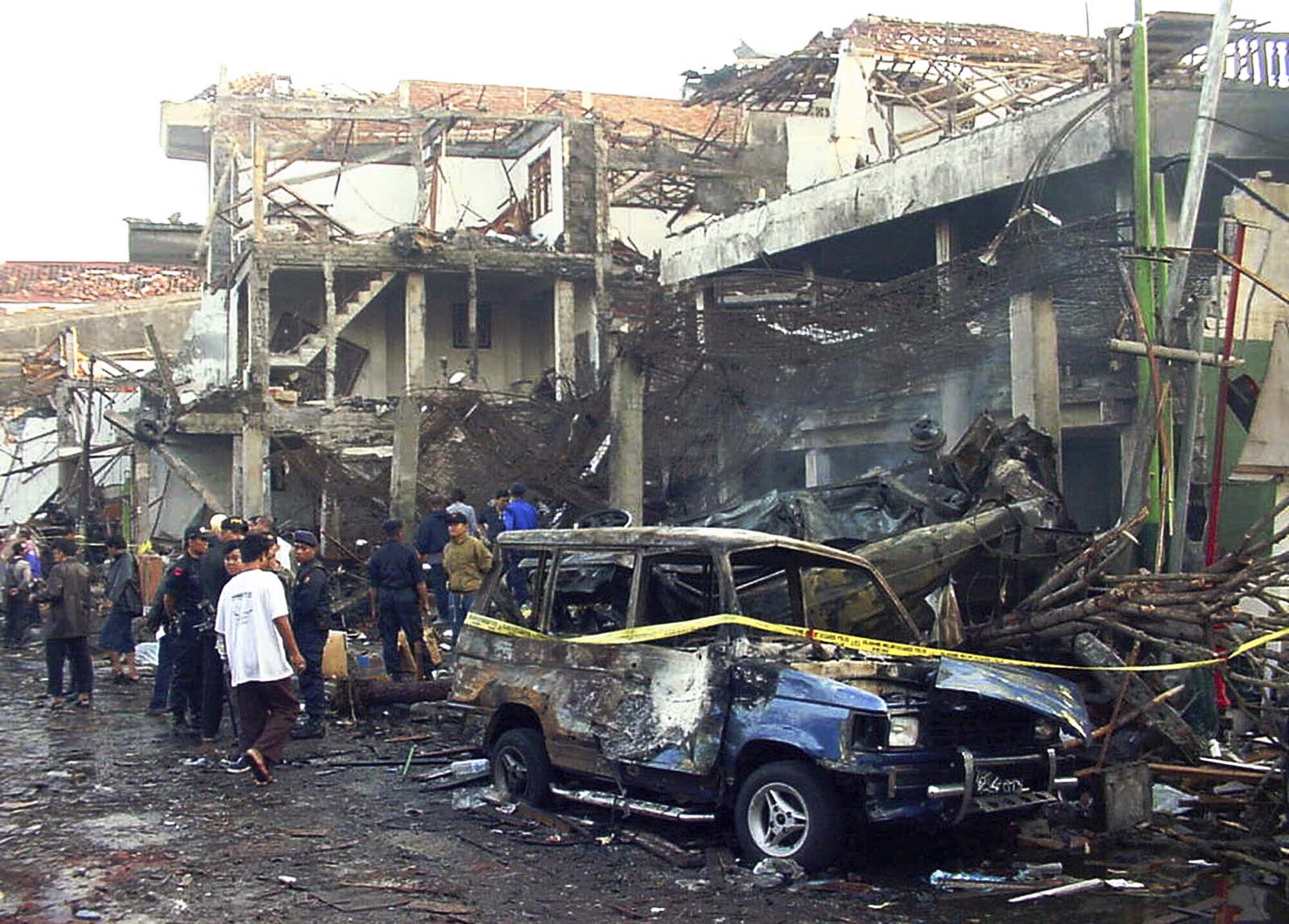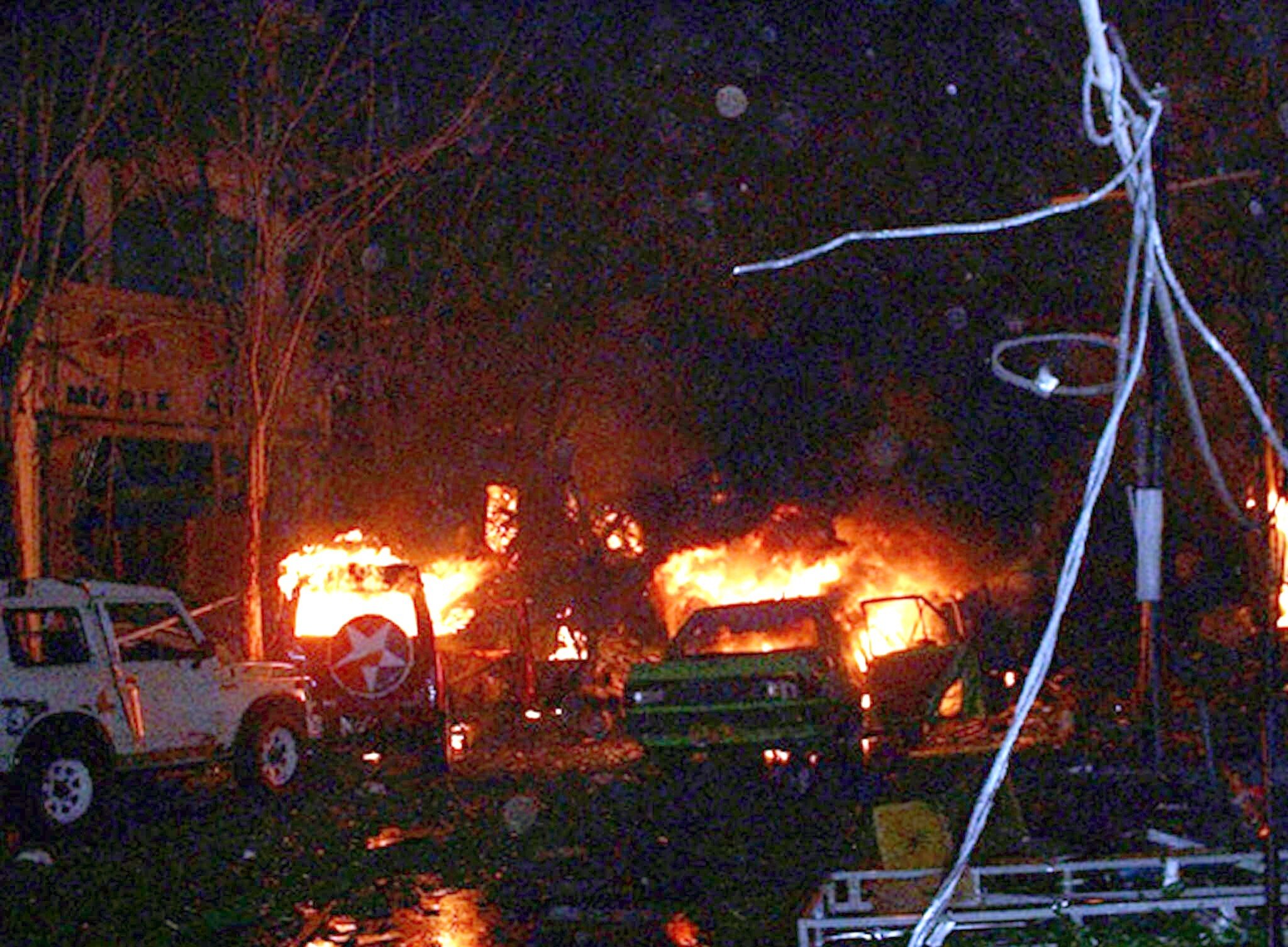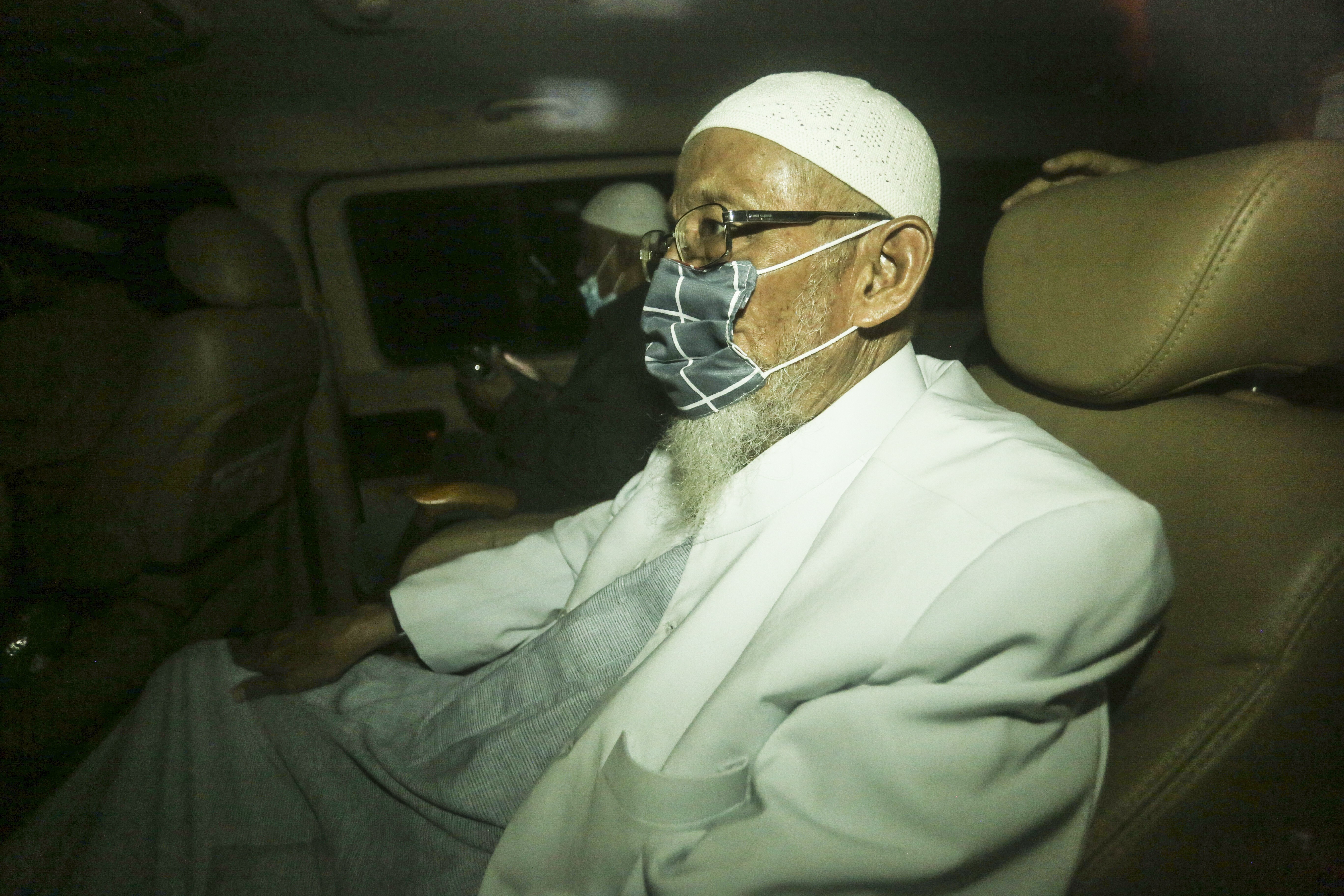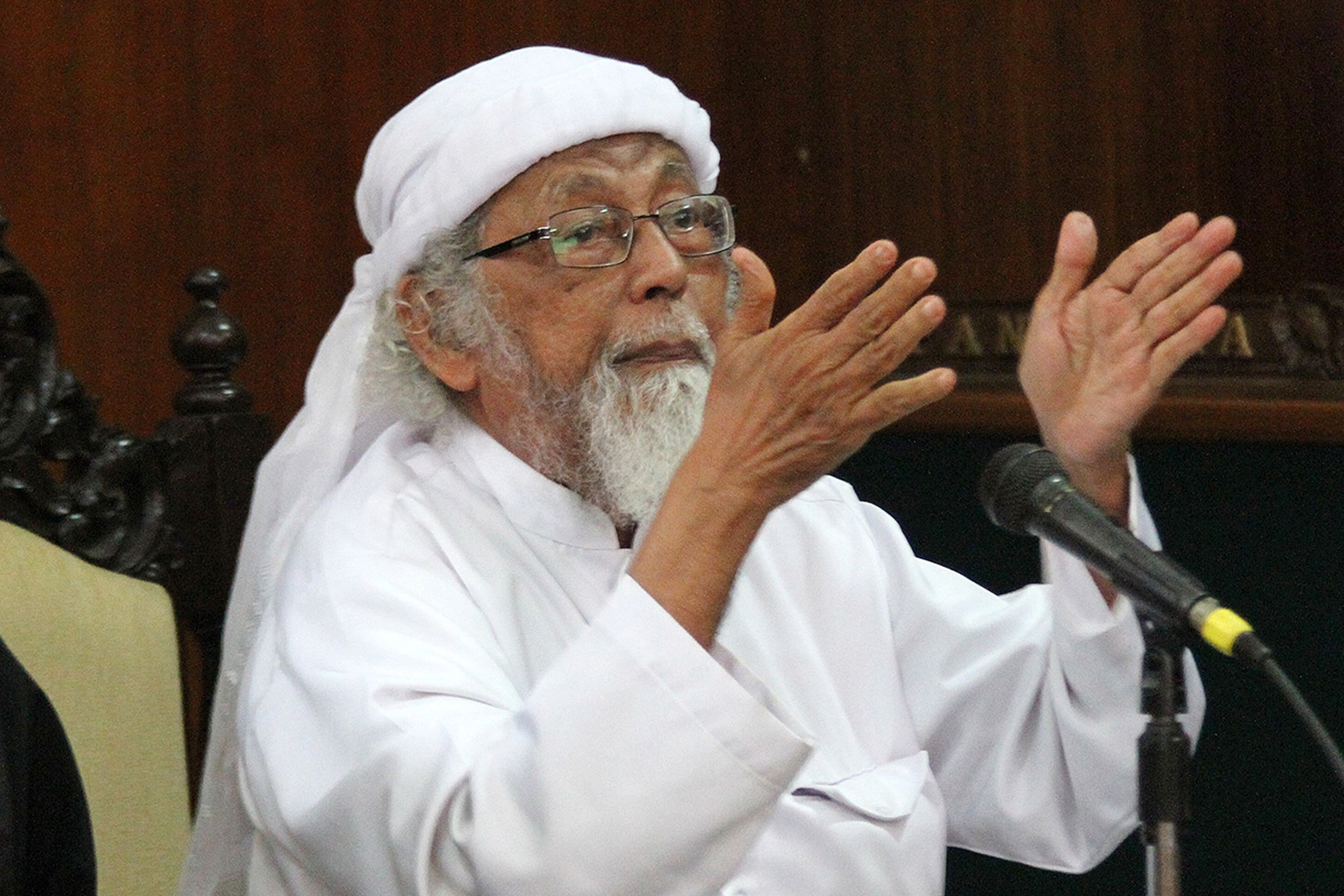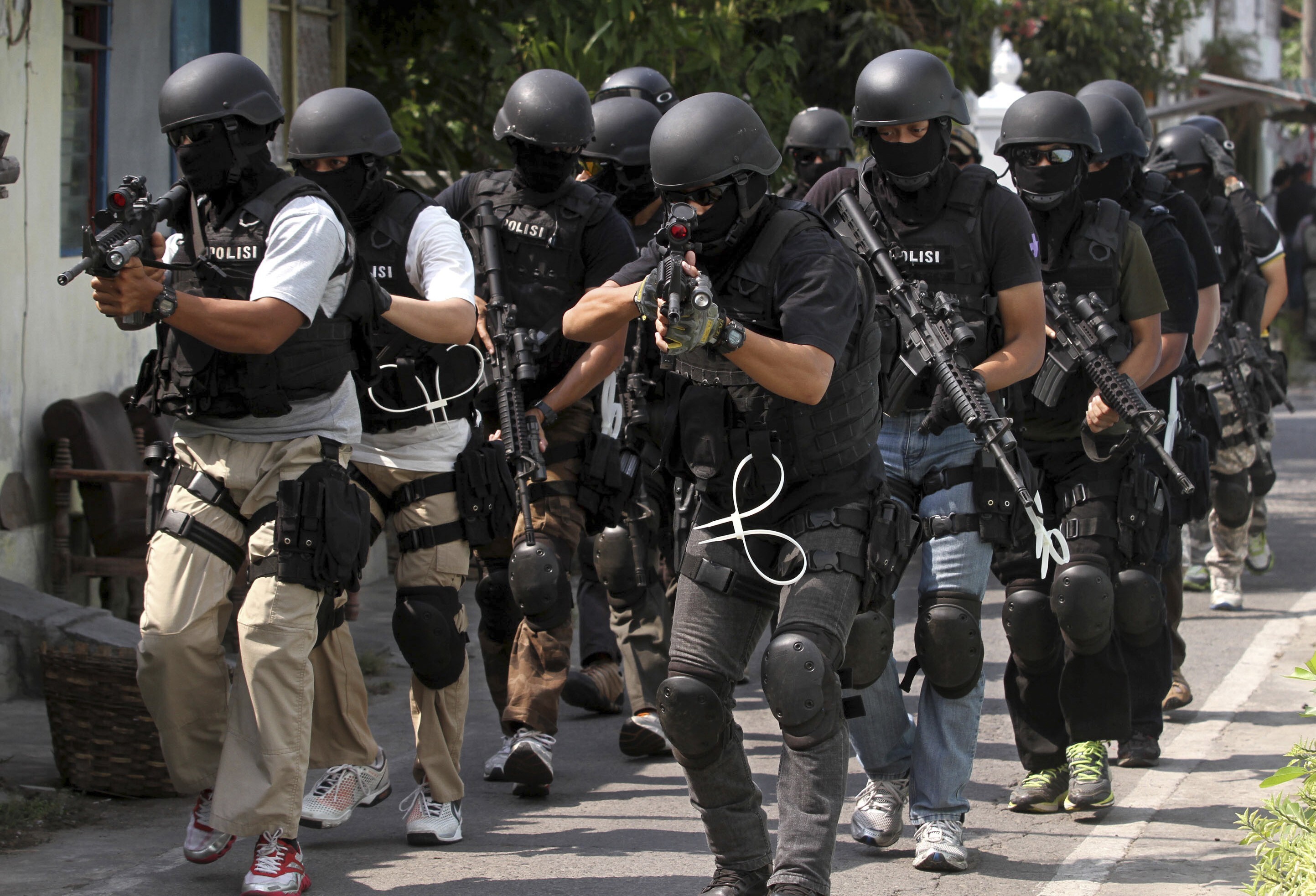Topic
On October 12, 2002, Bali fell victim to the deadliest act of terrorism in Indonesia's history. Three bombs were detonated in busy nightclubs in the popular Kuta district, killing 202 people and injuring more than 200 others. Members of Jemaah Islamiyah, an extremist Islamist group, were convicted over the bombings and in November 2008 Imam Samudra, Amrozi Nurhasyim and Huda bin Abdul Haq were executed by firing squad.
- A side deal and delay in handing over evidence meant Malaysians Mohammed Farik bin Amin and Mohammed Nazir bin Lep now only have to serve five years in jail, instead of 23
- Victims’ families say they are shocked to find out about the drastic reductions, call the trial at Guantanamo Bay a ‘bizarre stunt’
Malaysians Mohammed Farik bin Amin and Mohammed Nazir bin Lep must be punished to the fullest extent of the law for their ‘savage destruction of life’, the victims said.
Ali Imron, in prison for 21 years for his role in the 2002 Bali bombing that killed 202 people, has been speaking out against radical ideology in Indonesia.
Mohammed Farik bin Amin and Mohammed Nazir bin Lep pleaded guilty to being accessories in the 2002 Bali bombing that killed 202 people.
Two Malaysian suspects behind the 2002 Bali bombings could return home subject to talks with US authorities on their plea deals.
Mohammed Farik bin Amin’s possible plea deal could see him give evidence against two others accused of killing some 200 people in the Bali bombings.
In 2003, Hambali was arrested in Thailand and handed over to US authorities. He was then sent to CIA black sites where he was allegedly tortured, before being transferred to Guantanamo Bay where he remains awaiting trial.
Convicted Bali bomber Iman Samudra said Hambali was not involved in the attacks, according to his lawyer James Hodes.
Ali Fauzi, a former Indonesian terrorist, said a ‘turning point’ came after he joined a deradicalisation programme designed by the Indonesian police in prison.
Hisyam bin Alizein, aka Umar Patek, is now out on parole after serving just half of his 20-year sentence for making the explosives used in the 2002 bombings that killed 202 mostly foreign tourists, including 11 Hongkongers.
Australian officials say release will be ‘difficult’ for those who lost loved ones in 2002 attacks, while one survivor calls the move ‘laughable’.
Umar Patek was a leading member of the al-Qaeda-linked network Jemaah Islamiah, which is blamed for the bombings at two nightclubs in Kuta Beach in 2002. Authorities say he has reformed and they will use him to influence other militants to reject terrorism.
A candlelight vigil will be held at the site of the attack to remember the 202 victims, including 88 Australians.
Bashir said the 2002 attack that killed 202 people was wrong, but that he believes the culprits executed for their roles in the bombings were trying to ‘get rid of sinful deeds’.
Umar Patek says he is “sorry” for his role in the Bali bombings that killed 202 people, including 11 Hong Kong residents. The Indonesian is now eligible for parole, but authorities have yet to decide on his status.
Umar Patek was one of terrorists convicted for 2002 attack that killed 202 people; he was sentenced to 20 years in 2012 after years on the run.
Patek, the bomb maker in the attack that killed 202 people, including 88 Australians, got a 5-month sentence reduction – meaning he could be released on parole.
Aris Sumarsono was found guilty of harbouring suspects and hiding information about the 2002 Bali bombings that killed 202 people, mostly foreign tourists.
The Indonesian accused of masterminding the 2002 Bali bombings has been held in Guantanamo Bay for the past 15 years. He remains one of a handful of high-value detainees at the US military prison still considered a high-risk threat to the US.
Upik Lawanga was found guilty of making bombs used in the Tentena market attack, which killed 22 people and injured 91
The three men – an Indonesian and two Malaysians – appeared in a secure courthouse encircled by razor wire in Guantanamo Bay, Cuba amid defence complaints about biased and unskilled interpreters.
Indonesian prisoner Encep Nurjaman, known as Hambali, and two Malaysians started their arraignment at a hearing at the US base in Cuba
Encep Nurjaman or Riduan Isamuddin, better known by his nom de guerre Hambali, has been held at Guantanamo Bay since 2006, alongside Malaysians Mohammed Nazir bin Lep and Mohammed Farik bin Amin.
Proceeding to a full trial risks embarrassing the US with claims of torture at Guantanamo Bay. A plea deal is also a problem, as Indonesia is unlikely to want him back.
The bombings of tourist nightclubs in Bali killed 202, while the attack on the JW Marriott hotel in Jakarta a year later left 12 dead.
Bashir was imprisoned in 2011 for his links to a militant training camp in the religiously conservative Aceh province. He was convicted of funding the camp and sentenced to 15 years in jail.
He has completed a 15-year prison term for helping fund paramilitary training in conservative Aceh province.
The biologist, also known as Zulkarnaen, was arrested in a raid at a house in East Lampung district on Sumatra island.
Para Wijayanto – known as the “crown prince of Jemaah Islamiah”, the Southeast Asian wing of al-Qaeda – was involved in a spate of bombings across Indonesia, and evaded capture for so long because he often used a burka to disguise himself.

